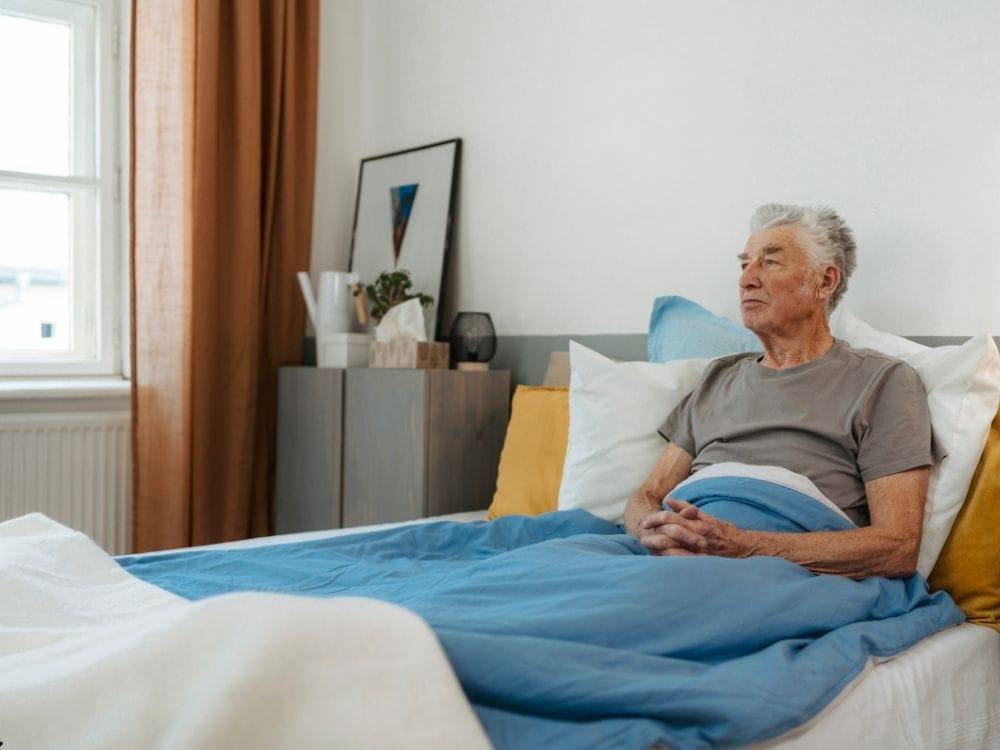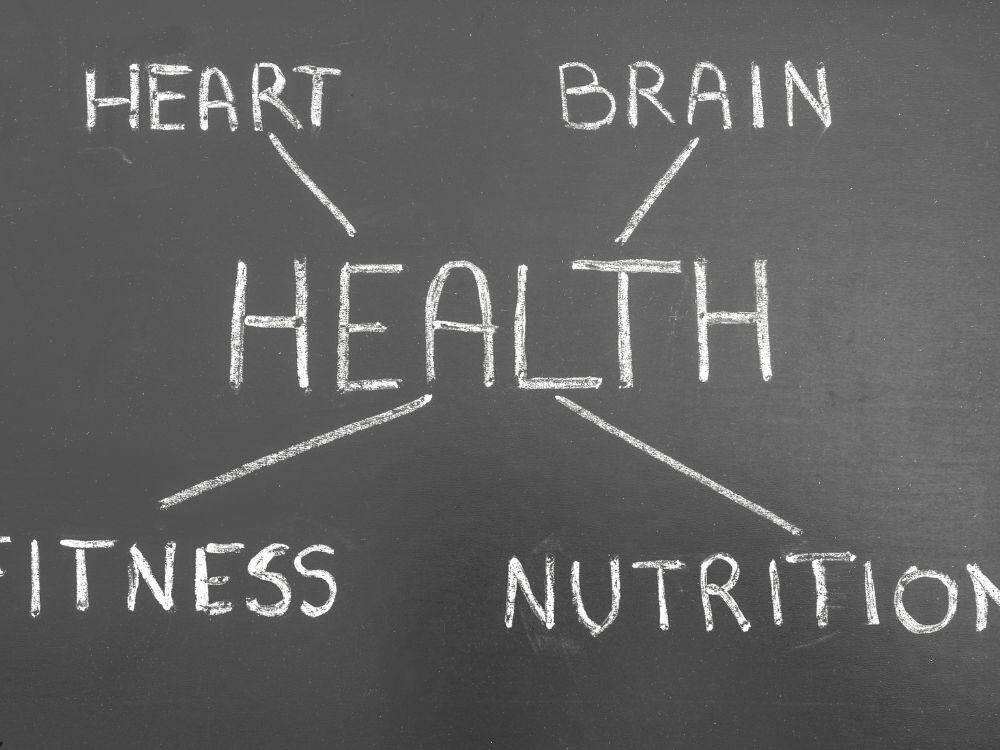
Aging is a journey full of changes; some expected, others surprising. As we grow older, we often consider physical health the main concern and mostly keep an eye only on our physical fitness. But mental health plays an equally vital role, in shaping how we feel, think, and even heal.
What’s truly fascinating is how closely these two are linked. One can uplift the other or create challenges when overlooked.
For seniors, this connection is especially significant. It’s not just about staying active or feeling happy. It’s about how these elements work together to create a sense of overall well-being. Caregivers and family members need to understand this balance to make all the difference in the lives of the elderly loved ones.
This article takes a closer look at the relationship between physical and mental health, especially in later life. Along the way, we’ll uncover why this connection matters and how it impacts the everyday lives of seniors.
Understanding Physical Health

When we talk about physical health, it more than just staying active. It’s about how well the body functions as a whole. Physical health becomes even more crucial in later years because it directly impacts a person’s independence and quality of life. Let’s break this down further.
The Basics of Physical Health
Physical health refers to the overall condition of the body. It’s influenced by factors like nutrition, exercise, sleep, and medical care.
In older age, maintaining physical health is about preventing or managing chronic illnesses. The priority of physical health in later years is staying mobile and feeling active enough to carry out daily activities.
- Good Nutrition
Eating a balanced diet provides the energy and nutrients seniors need to maintain their strength. Think of foods rich in vitamins, minerals, fiber, and protein. Hydration is also essential as dehydration can lead to fatigue and confusion. Poor nutrition can weaken the immune system and slow recovery from illnesses.
- Regular Exercise
Staying active helps keep muscles strong, improves flexibility, and boosts heart health. Regular exercise also helps maintain a healthy weight and improve balance. Exercise also reduces the risk of falls for seniors. Activities like walking, swimming, or gentle yoga are great for your elderly loved ones. If they have limited mobility, you can choose seated stretching routines.
- Proper Sleep
Seniors often struggle with sleep due to changes in sleep patterns or health issues. However, good rest is essential for the body to repair itself, support mental clarity, and boost the immune system. Encourage a consistent sleep schedule; reduce screen time before bed, and create a comfortable sleep environment. All these things contribute to improving their sleep routine.
- Routine Check-ups
Regular visits to the doctor can catch potential health problems early and provide valuable guidance on managing health. Regular checkups include vaccinations, screenings, and monitoring of vitals like blood pressure and cholesterol.
Common Physical Health Challenges for Seniors

Aging naturally brings changes to the body. Understanding these challenges can help caregivers provide better support:
- Chronic Conditions
The prevalence of chronic conditions increases with age. These chronic conditions include diseases like diabetes, hypertension, arthritis, and cardiovascular disease. Studies show that 85% of adults over the age of 65 have at least one and 60% have two chronic conditions.
These illnesses often progress slowly. However, they can lead to complications such as reduced mobility, diminished organ function, or risk of other diseases.
- Decline in Immune Function (Immunosenescence)
Aging impacts the immune system’s ability to respond effectively to infections. This process is known as immunosenescence. This decline increases susceptibility to infections such as influenza, pneumonia, and urinary tract infections.
Seniors also experience a slower recovery from illnesses and are at higher risk of complications. Reduced production of naive T-cells and increased inflammatory markers exacerbate existing health conditions.
- Loss of Bone Density (Osteopenia and Osteoporosis)
Bone density begins to decline after the age of 50, particularly in postmenopausal women due to lower estrogen levels. Osteoporosis, characterized by porous and brittle bones, affects an estimated 10 million people over the age of 50 in the U.S. alone.
This condition significantly increases the risk of fractures, especially in the hip, spine, and wrist. It can lead to long-term disability and decreased independence.
- Mobility and Musculoskeletal Challenges
Aging brings a natural loss of muscle mass (sarcopenia), which begins around the age of 40 and accelerates between 60 and 85. This, combined with joint degeneration, contributes to many mobility issues.
Osteoarthritis is a degenerative joint disease that increases the likelihood of falls and injuries . It affects approximately 30 to 50 percent of older people. It causes pain, stiffness, and reduced range of motion. These factors can make simple tasks like walking, standing, or climbing stairs more challenging.
- Sensory Decline
Age-related changes in sensory systems are common and can significantly impact daily living:
- Vision:
Conditions like cataracts, macular degeneration, and glaucoma are common in seniors. They often lead to impaired depth perception, contrast sensitivity, and visual acuity.
- Hearing:
Presbycusis, or age-related hearing loss, affects about one-third of adults over 65. It makes it difficult for the elderly to distinguish speech, particularly in noisy environments.
- Touch and proprioception:
Reduced sensitivity in the hands and feet impairs fine motor skills and balance.
- Taste and smell:
Diminished taste and olfactory sensitivity affect appetite and nutrition. Sometimes it leads to unintended weight loss or malnutrition.
These sensory impairments reduce the person’s ability to interact with the environment. It also contributes to risks such as falls, communication barriers, and social isolation.
- Cardiovascular and Respiratory Changes
The cardiovascular system undergoes structural and functional changes with age. Arterial stiffening and reduced elasticity increase the workload on the heart. This leads to hypertension and a higher risk of heart failure.
Similarly, respiratory efficiency declines due to reduced lung elasticity and weaker respiratory muscles. It leads to reduced exercise tolerance and a higher risk of respiratory infections.
- Cognitive and Neurological Decline
Cognitive changes such as slower processing speed and memory lapses influence physical health. Neurological conditions like Parkinson’s disease also become more prevalent with age. These lead to tremors, rigidity, and balance issues that impact physical functionality.
- Skin and Wound Healing Challenges
The skin becomes thinner, less elastic, and more fragile with age. This increases the risk of bruising, pressure sores, and delayed wound healing. Reduced sweat gland activity also makes seniors more prone to overheating or dehydration.
Understanding Mental Health

Mental health is a cornerstone of overall well-being, especially for seniors. As we grow older, emotional and mental challenges can become more prominent due to life changes and transitions. Let’s take a closer look at what mental health means and its significance in senior wellness.
What Is Mental Health?
Mental health refers to our emotional, psychological, and social well-being. It affects how we think, feel, and interact with the world around us.
For seniors, good mental health means being able to enjoy life, adapt to changes, and maintain fulfilling relationships. It also involves managing stress, staying resilient, and finding meaning in everyday experiences.
Emotional Well-Being in Later Life
Emotional well-being is about feeling content, having a sense of purpose, and experiencing positive emotions. For seniors, this can be influenced by various factors:
- Social Connections:
Maintaining strong relationships with family, friends, and the community significantly boosts emotional health.
- Sense of Purpose:
Engaging in activities like volunteering, hobbies, or outdoor games helps seniors feel valued.
- Self-Compassion:
Learning to accept oneself and letting go of regrets fosters inner peace and emotional stability.
Challenges to Mental Health in Seniors
Aging can bring unique emotional and psychological challenges, such as:
- Loneliness and Social Isolation
Social connections often diminish in later life. It owes to factors such as retirement, reduced mobility, relocation, or the loss of peers and loved ones. Surveys show that approximately 25% of adults over 65 are socially isolated.
Social isolation is linked to an increased risk of mental health disorders. Chronic loneliness can elevate cortisol levels. It ultimately leads to systemic inflammation associated with cognitive decline.
- Adjusting to Loss
Loss is an inevitable part of aging. It may involve the death of a spouse, friends, or family members, or the decline of physical abilities and independence. Grief is a natural response. However, unresolved or prolonged grief evolves into more serious conditions like persistent complex bereavement disorder (PCBD) or depression.
Research shows that seniors experiencing unresolved grief are at greater risk for developing physical health issues. It may cause hypertension, sleep disturbances, and a weakened immune system.
- Fear and Uncertainty
Aging is often accompanied by a sense of unpredictability about the future, particularly regarding health, financial stability, and dependence on others. These concerns can manifest as generalized anxiety disorder (GAD), which affects approximately 6.8 million seniors in the US.
Chronic stress related to these fears may contribute to the overactivation of the hypothalamic-pituitary-adrenal (HPA) axis. It can impair memory, concentration, and immune responses over time. This cycle of stress and uncertainty often compounds other mental health challenges.
- Depression
Depression is one of the common mental health disorders among seniors, affecting approximately 18% of adults aged 65 and older. Late-life depression cases remain underdiagnosed.
That’s because symptoms like fatigue, appetite changes, and cognitive difficulties are frequently attributed to aging or coexisting medical conditions. Depression in seniors is also linked to higher mortality rates due to its association with chronic illnesses like cardiovascular disease.
- Cognitive Decline and Associated Disorders
While some cognitive slowing is a natural part of aging, conditions such as Alzheimer’s disease and other forms of dementia are not. These progressive neurological disorders impact memory, decision-making, and emotional regulation.
The emotional toll of early cognitive decline often includes feelings of frustration, confusion, and helplessness, which can worsen anxiety or depression. Research indicates that up to 40% of the elderly with Alzheimer’s disease experience some symptoms of depression.
- Role Loss and Identity Crisis
Retirement, caregiving transitions, or physical limitations can lead to feelings of purposelessness as seniors lose roles that once defined their identity. These shifts can lead to existential distress.
It manifests as depression or withdrawal from social and community activities. Older adults who lack a sense of purpose are more likely to experience cognitive decline and a shortened lifespan.
- Sleep Disturbances
Sleep disorders, including insomnia and fragmented sleep, are common in older adults and are often linked to mental health. Poor sleep quality is not only a symptom of mental health disorders like anxiety and depression but also a contributing factor.
Chronic sleep deprivation disrupts brain regions responsible for emotion regulation and memory, compounding cognitive and emotional challenges.
- Substance Use and Medication Mismanagement
Substance misuse among seniors, though often overlooked, is a growing concern. Although the rate of illicit drug abuse decreases in older adults, alcohol and prescription medications, such as benzodiazepines, are commonly misused.
It is used either as a coping mechanism for mental health challenges or due to unintentional misuse. Substance abuse can exacerbate depression, anxiety, and cognitive impairment. It creates a feedback loop of declining mental and physical health.
The Bidirectional Relationship Between Physical and Mental Health

When we talk about health, it’s impossible to separate the physical from the mental. The two are deeply intertwined. They influence each other in ways that can either promote well-being or lead to challenges. This connection becomes even more significant as we age. For seniors, understanding this relationship is key to living a balanced, fulfilling life.
Let’s break it down into some important aspects.
How Physical Health Impacts Mental Well-Being
Chronic Illness and Mental Health
Living with chronic conditions like arthritis, diabetes, or heart disease can take a toll on one’s mental health. For seniors, the physical limitations caused by these conditions often lead to feelings of frustration, sadness, or even depression.
Chronic pain, in particular, can make it harder to enjoy daily activities, leading to a sense of isolation. This isolation, over time, can further exacerbate feelings of loneliness and negatively impact overall mental health.
Exercise and Mood Improvement
On the flip side, staying physically active has a profoundly positive impact on mental health. Exercise releases endorphins, the “feel-good” chemicals in our brains. For seniors, even gentle exercises like walking, yoga, or swimming can reduce anxiety and lift their spirits.
Regular physical activity also improves cardiovascular health, boosts energy levels, and enhances self-esteem.
Moreover, exercise helps in regulating sleep patterns, which are often disrupted by stress or physical health issues. Seniors who exercise regularly often report feeling more alert, capable, and emotionally resilient.
Nutrition’s Role in Mental Health
A balanced diet doesn’t just fuel the body; it also supports the brain. Nutrient deficiencies, like low levels of vitamin D, B12, or omega-3 fatty acids, can contribute to feelings of depression or anxiety. For example, omega-3 fatty acids found in fish have been linked to improved mood and cognitive function.
Whole foods like fruits, vegetables, whole grains, and lean proteins are full of essential nutrients. These nutrients stabilize blood sugar levels and improve brain health. Proper nutrition also helps stabilize their mood, reduce brain fog, and improve overall mental clarity.
How Mental Health Influences Physical Health
Stress and Physical Health
Stress doesn’t just affect the mind; it impacts the body too. Chronic stress can lead to high blood pressure, weakened immune systems, and increased inflammation. These physical issues can, in turn, lead to more significant health problems, such as cardiovascular diseases or diabetes.
For Seniors, stress can also worsen existing physical conditions, making effective stress management a top priority for overall well-being.
Depression and Physical Activity
When someone is struggling with depression, they often lack the motivation to stay physically active. This creates a cycle where inactivity worsens physical health, which then reinforces feelings of sadness or hopelessness.
Depression can lead to reduced appetite, poor sleep, and decreased energy levels, all of which negatively impact physical health. Breaking this cycle can be challenging but is essential for overall wellness. Encouraging small, achievable steps, such as short walks or gentle stretching, can help.
Cognitive Health and Physical Health
Conditions like anxiety or depression can also affect cognitive function. Forgetfulness, difficulty concentrating, or decision-making challenges are common symptoms of poor mental health. Over time, this mental strain can contribute to physical risks, such as falls or accidents, especially for seniors living alone.
Cognitive health and physical health are tightly linked. For instance, engaging in activities that challenge the mind, like puzzles or games, can prevent cognitive decline and improve coordination and strength.
Benefits of Addressing Both Together

- Improved Overall Health Outcomes
Addressing physical and mental health simultaneously leads to better health outcomes. It interrupts the feedback loop where one exacerbates the other. Depression in seniors with chronic conditions like heart disease is linked to poorer disease management and higher mortality rates.
Treating depression alongside the physical condition improves not only emotional well-being but also biomarkers like blood pressure, glycemic control, and cardiovascular health.
Research shows that integrated care models significantly reduce hospital readmissions and improve treatment adherence in seniors managing physical and mental health challenges.
- Enhanced Emotional and Physical Resilience
Seniors who receive integrated care build resilience to cope with the complexities of aging. Emotional well-being has been shown to modulate the body’s stress response, lowering cortisol levels and reducing systemic inflammation, which is associated with chronic diseases like arthritis and cardiovascular disorders.
Conversely, maintaining physical activity through physiotherapy or tailored exercise programs improves mood by increasing endorphin production and reducing symptoms of depression and anxiety. This reciprocal benefit equips seniors to face challenges with greater emotional stability and physical endurance.
- Increased Compliance with Treatment Plans
Mental health conditions such as anxiety or depression often diminish motivation, leading to poor adherence to medical treatments. Seniors with depression are three times more likely to neglect their medication schedules and medical appointments.
By addressing mental health alongside physical ailments, healthcare providers can ensure that seniors stay engaged in their care plans. For example, counseling or support groups can encourage seniors to follow prescribed diets, attend physical therapy sessions, and adopt regular exercise, which improves long-term outcomes.
- Reduced Risk of Comorbidities and Complications
Mental health disorders like depression and anxiety are linked to heightened inflammation, increased risk of chronic diseases, and slower recovery rates. Likewise, physical conditions can aggravate mental health issues due to chronic pain or functional limitations.
Integrated care reduces these risks. For instance, treating anxiety in patients with hypertension has been shown to lower blood pressure more effectively than treating hypertension alone.
Similarly, addressing insomnia alongside chronic pain helps reduce both fatigue and psychological distress, preventing a cascade of health deterioration.
- Better Quality of Life and Longevity
Seniors who receive care for both physical and mental health experience a higher quality of life. Holistic strategies improve mobility, independence, and emotional well-being. It enables seniors to engage more actively in their communities and maintain social connections.
Moreover, integrated care minimizes the psychological and physical burden of aging, allowing seniors to live more fulfilling lives.
Impact of Social Connections on Health

For seniors, meaningful social interactions can be a key to both physical and mental wellness. Let’s take a closer look at how social connections impact health.
How Social Connections Affect Mental Health
Staying connected with loved ones or forming new friendships can greatly improve a senior’s mental health. Isolation and loneliness, on the other hand, often lead to depression and anxiety.
- Regular interaction with others helps reduce stress by providing emotional support and a sense of belonging.
- Engaging in conversations and activities with others stimulates the brain, which can help delay cognitive decline.
- Strong social ties provide a safety net during challenging times, giving seniors the confidence to face difficulties.
Encouraging social activities, whether it’s a weekly phone call or joining a local group, can make a significant difference.
The Physical Health Benefits of Being Social
Social connections don’t just keep your spirits high. They also have a direct impact on physical health.
- Lowering Blood Pressure: Studies show that positive relationships can reduce stress-related hormones, keeping blood pressure in check.
- Improved Immune Function: A healthy social life can strengthen the immune system, helping seniors fend off illness more effectively.
- Encouraging Healthy Habits: Friends and family can motivate seniors to stay active, eat healthily, and stick to medical routines.
Even simple acts, like going for a walk with a friend, can contribute to better physical health.
The Danger of Social Isolation
For seniors, isolation is more than just feeling lonely. It can pose real risks to their health.
- Increased Risk of Chronic Diseases: Loneliness has been linked to conditions like heart disease, diabetes, and high blood pressure.
- Higher Mortality Rates: Research indicates that chronic loneliness can be as harmful as smoking 15 cigarettes a day.
- Decline in Daily Functioning: Without regular social interactions, seniors may lose the motivation to stay active or engage in daily routines.
Holistic Approaches to Senior Wellness

True wellness comes from balancing the mind, body, and spirit. For seniors, this holistic approach can lead to improved quality of life and deeper satisfaction. By integrating various practices and therapies, seniors and their caregivers can foster overall well-being and happiness.
Integrating Mind, Body, and Spirit
Wellness for seniors goes beyond just taking care of physical ailments. True health stems from harmony between the mind, body, and spirit. By focusing on all three aspects, seniors can experience a better quality of life. For example, engaging in activities like yoga or tai chi can connect physical movement with mental clarity and spiritual peace.
Meditation and mindfulness practices are also effective. They help calm the mind, reduce stress, and provide a sense of purpose and inner strength. Seniors who take time to nurture their mental and spiritual well-being often feel more energetic and positive about life.
Simple steps like walking in nature or participating in social groups that share meaningful conversations can boost mental and emotional health. Seniors can also explore journaling, prayer, or creative hobbies like painting or music to maintain this balance. These practices don’t have to be complex. Even small efforts can have profound effects when they are done consistently.
Exploring Complementary and Alternative Therapies
Complementary and alternative therapies can play a big role in supporting senior wellness. These therapies, when combined with conventional medical treatments, can address the unique needs of aging individuals, and encourage a more holistic approach to health.
Acupuncture, for instance, can help alleviate chronic pain, improve sleep quality, and reduce stress. Massage therapy is another great option. It not only eases muscle tension but also improves circulation and promotes relaxation.
Herbal remedies like chamomile for sleep or turmeric for joint pain can provide natural relief. However, seniors and their caregivers need to consult healthcare providers before trying any new treatments to ensure they’re safe and appropriate.
Another valuable practice is aromatherapy, where essential oils like lavender or peppermint are used to reduce anxiety, uplift mood, or manage minor aches.
Gentle physical therapies, like water aerobics or Pilates, are also excellent for maintaining mobility and reducing stiffness.
Building Strong Connections
Relationships are an essential part of holistic wellness. Seniors who maintain meaningful connections often report better mental health and reduced feelings of loneliness. Spending time with family and friends provides emotional support and strengthens the spirit.
Caregivers and loved ones can encourage social activities like joining clubs, volunteering, or participating in group fitness classes. Even simple routines, like regular phone calls or shared meals, can make a big difference.
Technology can also be a great ally. Seniors can use video calls or social media to stay in touch with distant loved ones. Pet therapy is another way to build connections. Interacting with pets has been shown to reduce anxiety and provide companionship. This sense of belonging and community can have lasting effects on overall wellness.
Nurturing Through Nutrition
Nutrition plays a significant role in holistic health. Eating balanced meals doesn’t just support physical health. It also impacts mental and emotional well-being. Foods rich in omega-3 fatty acids, such as salmon and walnuts, can improve brain health and reduce symptoms of depression.
Whole grains, fruits, and vegetables provide essential vitamins and minerals, boosting energy and overall vitality. Seniors should also stay hydrated and avoid excessive caffeine or sugar, as these can lead to mood swings or energy crashes.
For those who face challenges in preparing meals, meal delivery services or community programs can be lifesavers. Sharing meals with others can also add a social element, turning nutrition into an enjoyable experience that nourishes both body and spirit.
The Role of Physical Activity
Staying active is a cornerstone of senior wellness. Physical activity doesn’t have to mean intense workouts. Gentle exercises like walking, swimming, or dancing can bring significant benefits.
These activities improve heart health, strengthen muscles, and enhance flexibility. They also release endorphins, which are natural mood lifters. For seniors with limited mobility, chair exercises or seated stretching routines can be helpful.
Regular physical activity helps maintain independence, boosts confidence, and reduces the risk of chronic illnesses like diabetes or osteoporosis. When combined with practices like yoga or tai chi, physical activity also integrates the mind-body connection, offering even greater holistic benefits.
The Role of Healthcare Providers in Promoting Holistic Health

Healthcare providers and caregivers are often the first to notice subtle changes in health. They can guide patients and their families toward better care. But it’s not just about treating illnesses. It’s about fostering an environment where seniors feel understood and cared for as whole individuals.
Understanding the Whole Person
Doctors, nurses, and therapists often emphasize physical health through treatments, medications, and preventive care. But great healthcare providers also understand that a senior’s emotional and mental health is just as important. They take time to listen and ask the right questions: How are you feeling emotionally? Are you finding joy in your daily activities?
These conversations help identify challenges like anxiety, depression, or loneliness, which are common among seniors. When healthcare providers show empathy, they build trust and create a sense of comfort that goes beyond the clinic.
Encouraging Open Communication
A good healthcare provider encourages open communication. They make it easy for seniors and their families to talk about concerns, no matter how small. For example, if a senior mentions they feel isolated or have difficulty sleeping, the provider might suggest ways to connect with others or offer tips to improve sleep quality. It’s about creating a space where seniors feel safe to share.
Bridging Physical and Mental Care
One of the most effective ways providers promote holistic health is by connecting the dots between physical and mental health. For instance, regular exercise can ease joint pain, but it also boosts mood and reduces anxiety. Healthcare providers can explain these benefits, making seniors feel empowered to take small, meaningful steps.
Providers also look for early warning signs. For example, changes in appetite or sleep might indicate underlying health issues, stress, or even depression. Addressing these signs promptly helps seniors maintain both physical and emotional balance.
Connecting Seniors to Resources
Healthcare providers often act as connectors, linking seniors to helpful resources. They might recommend support groups, community centers, or counseling services. If a senior is struggling with mobility, they might suggest a physical therapist. If loneliness is an issue, they could recommend social programs designed for older adults.
By providing these connections, they ensure seniors don’t have to tackle challenges alone. Families and caregivers are often included in these plans, creating a strong support network.
A Team Effort
The best care happens when healthcare providers, families, and seniors work together. Providers guide with knowledge and compassion, while families offer emotional support and encouragement. Seniors, too, play an active role by sharing how they feel and what they need.
Conclusion
In the end, physical and mental health are like two sides of the same coin—they’re deeply connected and equally important. Taking care of both is essential for a happier, healthier life, especially for seniors who deserve nothing less. A balanced approach to wellness can bring joy, reduce stress, and enhance quality of life.
At Amy’s Eden Senior Care, we understand this connection deeply. Our personalized care focuses on nurturing not just the body, but also the mind and spirit. Whether it’s through meaningful activities, compassionate support, or creating a home-like environment, we’re here to make every day better. Let’s connect to give your loved ones the care and attention they truly deserve.




